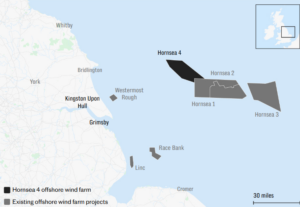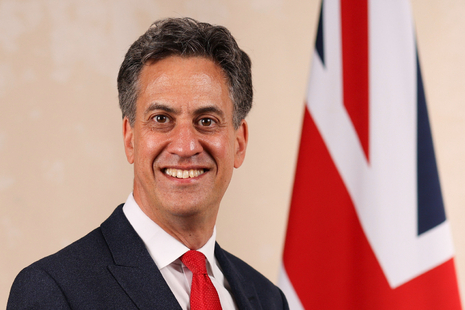Britons’ electricity bills are at risk of rising as Energy Secretary Ed Miliband plans to fund thousands of extra turbines.
This is how Miliband will achieve his dream of Net Zero.
The energy secretary is preparing to remove key restrictions on funds transferred from electricity bills to turbine manufacturers, according to The Telegraph. Miliband plans to subsidise thousands of new wind turbines within a few years, by the magic year of 2030.
He has pledged to make the UK’s electricity supply 95 per cent carbon-free by that date. The target has been criticised as «fantasy» by the Conservatives, in part because there are too few offshore wind projects underway.
However, offshore wind is far more expensive than onshore wind power, and all types of wind turbines have one thing in common: they don’t produce electricity when the wind isn’t blowing. Last week, Ørsted pulled out of the Hornsea 4 project to build 180 giant turbines off the Yorkshire coast.

Miliband wants to remove restrictions on the total subsidies offered to offshore developers in Whitehall auctions. In this way, he wants to speed up production.
Instead, the plan is to set a target for how much electricity should be produced. The cost to UK households will only be calculated afterwards.
Analysts estimate that it could cost up to £11 billion a year to commission enough wind farms to meet the 2030 target. They also estimate that the increase will lead to an annual rise of £135 in the average household energy bill.
£135 is equivalent to almost 180 USD. This is on top of already high energy bills.
A Whitehall source admits that costs could rise initially, but suggested that investment in renewables would now lead to lower prices in the years ahead.
– It means short-term pain in electricity bills, but long-term gain, he said.
The plans were revealed in documents from Miliband’s Department of Energy Security and Net Zero (DESNZ).
John Constable is director of The Renewable Energy Foundation. He also envisages that the project will cost around £11 billion each year.
– With a slight tweak to the rules on green subsidies, Ed Miliband could give himself the freedom to quietly add many billions of pounds a year to national electricity bills, says Constable.
– If the Chancellor were to propose tax increases of this magnitude, affecting every household and business in the country, there would be a storm of criticism in Parliament and elsewhere.
– How long will the Prime Minister allow the Department of Energy Security and Net Zero Emissions to operate without democratic accountability?
A recent poll in The Telegraph shows that a large majority of Britons have had enough of the costly dreams of zero emissions.
This week we asked readers: Should the UK scrap its target of Net Zero by 2050? A whopping 95 per cent of over 30,000 respondents answered yes.
Whether Ed Milliband will take this into account is another question.


